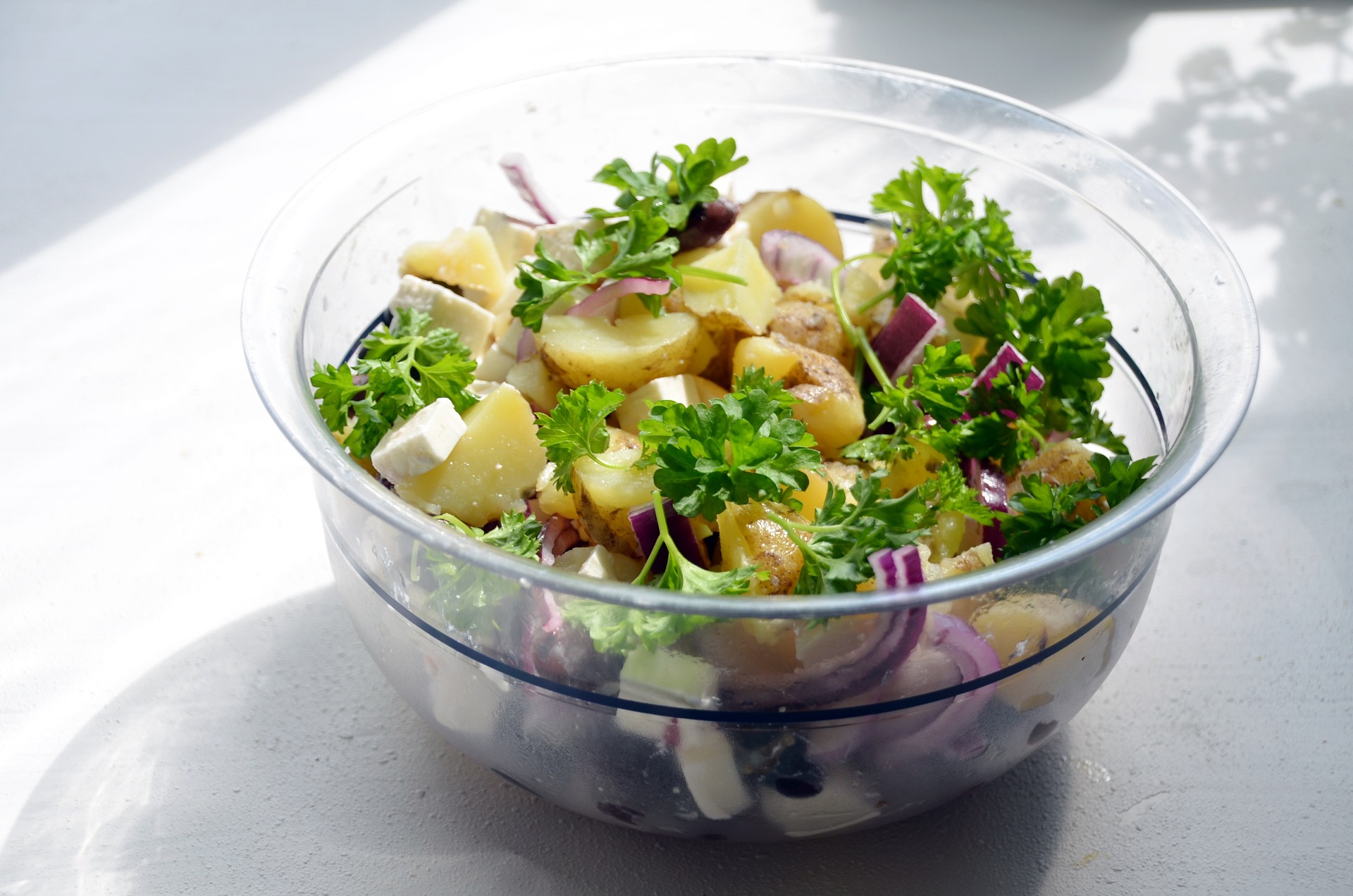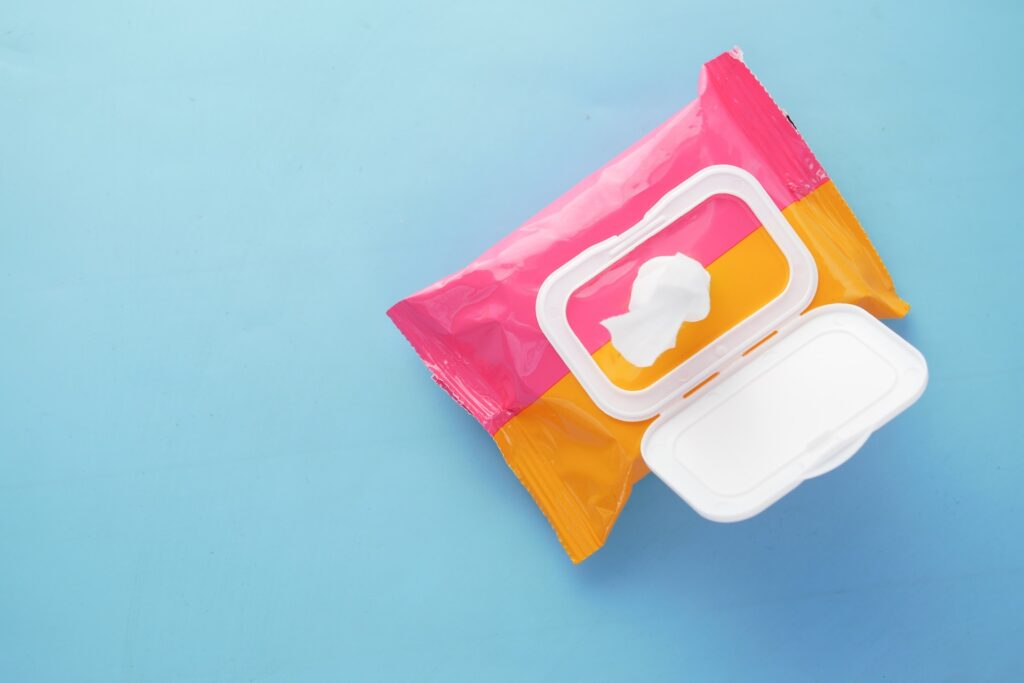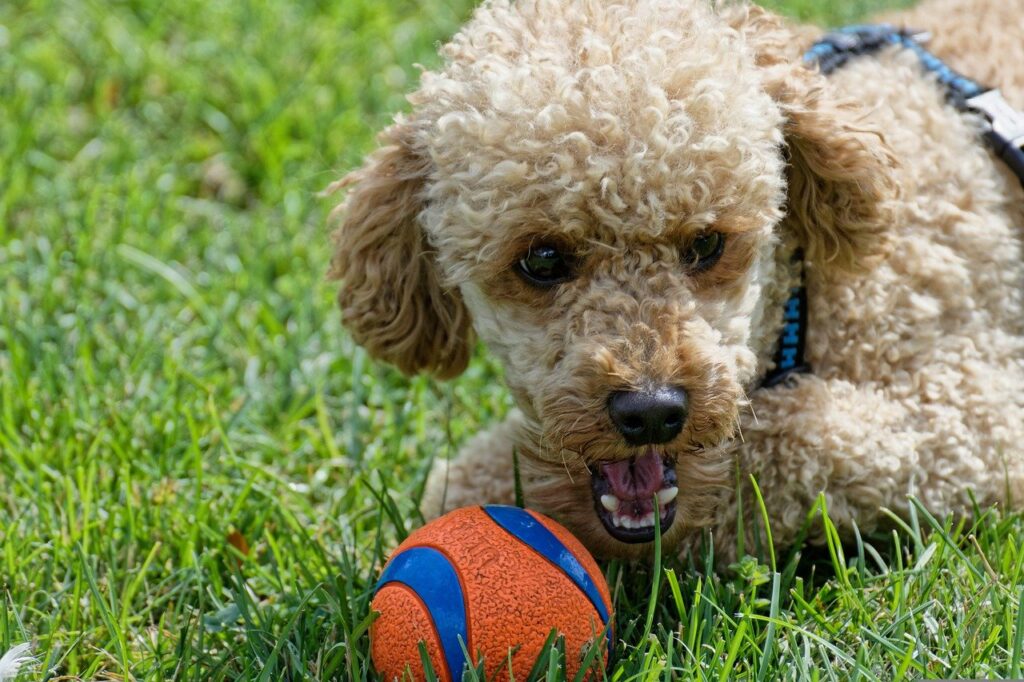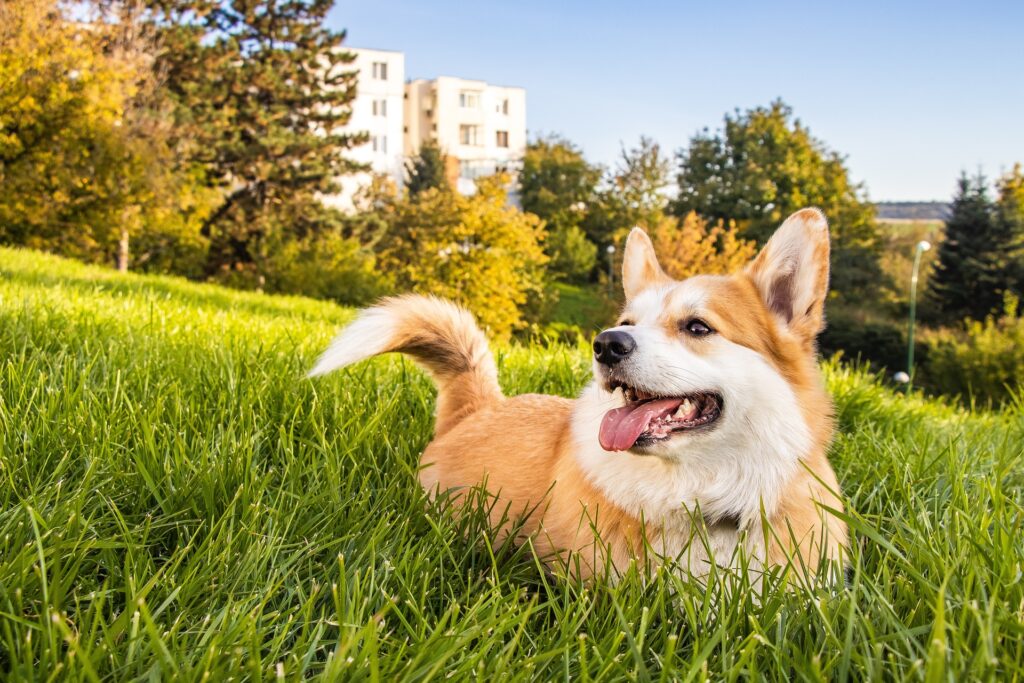When it comes to feeding our furry friends, it’s essential to know which human foods are safe for dogs and which ones should be avoided. One common question that arises during summer picnics is “can dogs eat potato salad?”.
Dogs should not be fed potato salad because it contains a lot of toxic ingredients for dogs. Potatoes are fine, but the garlic, onions, pickles, and spices in the salad can cause many problems for your dog. But there are some healthy alternatives.
- What are the risks and benefits of dogs eating potato salad?
- What are the Ingredients in potato salad and how do they affect dogs?
- How can potato salad be fed to dogs responsibly?
- What are the alternatives to potato salad for dogs?
What are the risks and benefits of dogs eating potato salad?
As with any food, there are some potential risks and benefits it brings to dogs. It is important to know these when deciding if you should feed it to your dog.
Potential risks of feeding potato salad to dogs
Feeding potato salad to dogs can come with certain risks. One of the primary concerns is the presence of toxic ingredients or harmful seasonings in potato salad.
Onions and garlic, vegetables that are part of the Allium species, are commonly used in potato salad recipes and are known to be toxic to dogs. These ingredients contain compounds that can cause damage to a dog’s red blood cells, leading to anemia. Therefore, it’s crucial to avoid feeding potato salad that contains onions, garlic, or any related products to your dog.
In a study covering Allium toxicity in dogs, Breno Salgado et al. explain the symptoms of this terrible intoxication:
| The first signs are usually of gastroenteritis: vomiting, diarrhea, abdominal pain, loss of appetite, depression and dehydration. It will take a few days for the dog to display the signs associated with the loss of red blood cells: pale mucous membranes, rapid respiratory rate, diculty to breathe, lethargy, dark colored urine (reddish or brown), jaundice, weakness, and rapid heart rate. Breno Salgado et al. |
Potential benefits of certain ingredients in potato salad
Although potato salad may pose risks to dogs, some ingredients found in it can provide benefits when consumed in moderation. For example, potatoes themselves are a good source of carbohydrates and provide essential nutrients such as vitamin C and potassium to dogs. However, potatoes should always be cooked thoroughly and served without any added seasoning, including salt and spices.
What are the ingredients in potato salad and how do they affect dogs?
Potato salad is not safe for dogs due to the many different salad ingredients that are added to it. Some can be more dangerous than others.
Common ingredients in potato salad
Potato salad typically contains a variety of ingredients. Here are some common components you may find:
- Potatoes
- Mayonnaise
- Eggs
- Celery
- Pickles
- Mustard
- Salt and pepper
Harmful or toxic ingredients for dogs
Avoid the following ingredients when preparing potato salad for dogs:
- Onions and garlic: These can cause damage to a dog’s red blood cells.
- Salt and spices: Excessive sodium intake can lead to salt poisoning in dogs.
- Pickles: While small amounts of pickles may not be toxic, they often contain high levels of salt and spices, which can be harmful to dogs.
Safe ingredients for dogs in moderation
Not all ingredients in potato salad are necessarily harmful to dogs. In moderation, the following ingredients can be safe for your furry friend:
- Cooked potatoes: Ensure they are plain, without seasoning or additional ingredients.
- Mayonnaise: While dogs can have small amounts of mayonnaise, it should not contain any toxic ingredients like onions or garlic.
How can potato salad be fed to dogs responsibly?
You should abide by a few guidelines when feeding your dog to avoid any negative effects. Having a proper homemade potato salad recipe for dogs can help.
Guidelines for responsible feeding practices
If you decide to share a small portion of potato salad with your dog, it’s crucial to do so responsibly. Here are some guidelines to follow:
- Portion control: Only give your dog a small amount of plain potato salad without toxic ingredients, and make sure it doesn’t make up a significant portion of their diet.
- Monitor for adverse reactions: Watch for any signs of digestive upset or allergic reactions after feeding potato salad to your dog. Some dogs don’t know when to stop eating and will require you to remove the food in this situation.
- Consult with a veterinarian: It’s a great idea to reach out to your vet before introducing any new food into your furry friend’s diet. They can provide valuable guidance to ensure that the food meets their nutritional requirements and keeps them in good health.
Importance of consulting with a veterinarian
Due to the individual nature of each dog, their nutritional requirements can change depending on things like age, breed, and underlying medical concerns. Consulting with a veterinarian is essential before introducing any new food, including potato salad, to your dog’s diet. They can provide personalized guidance and recommend appropriate alternatives if necessary.
When introducing new food to your dog, Dr. Deborah E. Linder, a board-certified veterinary nutritionist, explains: “We recommend gradually mixing an increasing amount of the new food into the old diet for over the course of at least one week to allow your pet’s digestive tract the time to adjust.”.
What are the alternatives to potato salad for dogs?
Potato salad can be tasty and refreshing but it is not safe for your dog. There are several great substitutes though.
Safe and healthy food options
Although potato salad may not be the ideal pick for your four-legged buddy, there are numerous dog-friendly alternatives available for those sunny picnics or get-togethers during summer:
- Fresh fruits and vegetables: Dogs often enjoy bites of crisp and refreshing fruits like watermelon, apple slices, or vegetables like baby carrots and cucumber. Giving pumpkins will help dogs with diarrhea. Just make sure to remove any seeds or pits and avoid toxic options like grapes or raisins.
- Dog-friendly salads: You can create a dog-friendly salad by combining leafy greens like spinach or kale with cooked, plain proteins such as chicken or turkey. Avoid adding any dressings or seasonings that may be harmful to dogs.
- Homemade dog treats: Opt for homemade dog treats using safe ingredients specifically designed for canine consumption. For example, dogs can eat popcorn if made properly at home. There are also numerous recipes available online that provide delicious and healthy alternatives to potato salad.
Can dogs eat potato salad? – A summary
It’s essential to prioritize your dog’s well-being when it comes to their diet. You can’t just feed anything you do because a dog’s gastrointestinal symptoms greatly differ from ours. Dogs can include potatoes in their diet and can benefit a lot from their nutrients.
When making a potato salad, adding any ingredients that can cause toxicity in dogs will make it inedible for them. Remember to consult with your veterinarian for personalized advice and consider alternative options that provide nutritional value without posing potential risks to your furry friend.
Frequently asked questions about dogs and potato salad
Is it safe for dogs to eat mayonnaise?
Mayonnaise is not recommended for dogs due to its high fat content and potential additives. It can lead to digestive issues, pancreatitis, or even obesity if consumed in large amounts.
Can dogs eat boiled potatoes instead of potato salad?
Because dogs can not eat potato salad, they can eat boiled potatoes as a safe and nutritious alternative. Of course, any of the aforementioned harmful ingredients should be avoided.
Is it safe to give pickles from potato salad to dogs?
Pickles frequently include high quantities of salt and spices that might be unhealthy for dogs’ health, thus it is recommended to avoid feeding them.
More dog nutrition resources
Here are a few other resources talking about giving certain foods to dogs and the effect they have on their health.
- Can dogs have ritz crackers
- Can dogs eat canned green beans
- Dog ate uncooked rice
- Horse meat for dogs
- Can dogs eat ice cream cones
You can find a lot more information on the types of food you can feed your dog on our site Dogisa!
What To Do If Your Dog Ate A Baby Wipe: Advice And Solutions
Dogs like to chew on things and sometimes they will get their chompers on something…
Do Poodles Pick A Favorite Person? – How To Be The Favorite
Poodles are loving and intelligent dogs that will fit in perfectly with your family. And…
Do Poodles Bite? – Reasons For Biting And How To Control It
Poodles are a cute dog breed that is very popular among dog owners. People usually…
Why do Dog Leave Odorless Wet Spots? And how to treat them
It is not uncommon for dog owners to notice that their dog leave odorless wet…
Why Does My Dog Only Have Diarrhea At Night? [How To Help]
Diarrhea is not an uncommon thing and most dogs will suffer from it at least…
A Complete Guide To The Corgi Heat Cycle [+ Tips]
Going into heat is what we refer to when we talk about periods in dogs….







